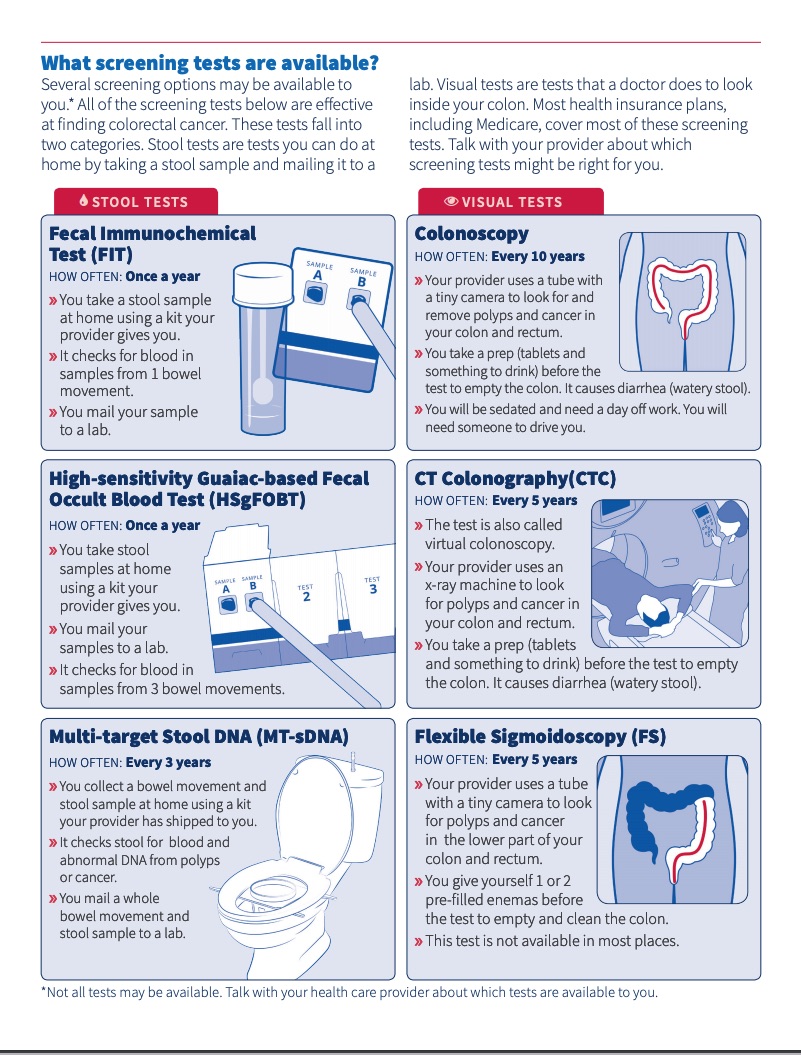
In 2018, for the first time in a decade, the American Cancer Society (ACS) updated its colorectal cancer screening guidelines. It now recommends that “adults ages 45 and older with an average risk of colorectal cancer get screened regularly with a stool test or a visual test. Part of screening is having a follow-up colonoscopy for positive results on any screening test (besides colonoscopy).”
Hilary Schneider, Maine Director of Government Relations, American Cancer Society Cancer Action Network, explains why ACS lowered the age from 50 to 45.
The new age guideline was based on data that showed rates of colon cancer are increasing in younger adults. The American Cancer Society did a study that showed a 51% increase in colon cancer incidence among those under age 50 since 1994. No one fully understands why that is but it’s probably due to a number of factors. It’s enough of an issue that the decision was made to lower the starting age for average-risk people to 45 in an effort to get more detected early and to save lives.
Hilary Schneider
Colorectal cancer is the third most commonly diagnosed cancer in the United States. The American Cancer Society estimates that nearly 145,000 new cases will be diagnosed nationwide and 670 in Maine.
Types of screening tests
The previous guidelines favored visual screening tests that not only detect but might also help prevent cancer. During a colonoscopy, for instance, a precancerous polyp can be removed then and there. The updated guidelines leave it up to the individual to decide whether a visual or a stool test is the best option.
They put the patient and the provider in the driver’s seat and say the best test is the test that the patient is willing to get.
Hilary
There are several reasons why some people would rather do a stool test.
They can do it in the privacy of their own home and send it off analysis. They don’t have to take a day off from work, they don’t have to find somebody who can drive them. It may be especially convenient for people in rural Maine who may have to drive over a hundred miles to get to a place where they can have a colonoscopy. And they might be reluctant to do the prep needed for a visual test.
Hilary
An important caveat in the updated guidelines is that if a screening test other than a colonoscopy comes back positive it needs to be followed up with a colonoscopy.
Here’s a graphic from the American Cancer Society that explains some of the various screening options. You can also read my blog post Don’t want a colonoscopy? There are other ways to screen for colorectal cancer.

Updating Maine’s screening law
Maine has had a law for quite some time that mandates private insurance companies to cover screenings based on cancer society guidelines. The current law still uses 50 as a starting age and references colonoscopies as the preferred screening test.
Because of the new age recommendation and the expanded screening options, there is now an updated bill in the Maine Legislature. LD555, “An Act To Reduce Colorectal Cancer Incidence and Mortality by Updating Screening Coverage” recently received unanimous support from the insurance committee.
Hilary says it’s possible the full legislature will vote on it sometime in April. If it passes, the implementation date for new and revised policies would be on or after January 1, 2020.
If his bill does not pass, some people will not get coverage for screening. They’ll have to pay for it out of pocket because they won’t be eligible for a screening colonoscopy until they turned 50 unless they are deemed high risk.
Hilary
Click here for more information about LD555 and to read public testimony from cancer specialists and individuals. And if you’re so inclined, Hilary urges you to call your
Additional details
The Affordable Care Act requires health plans that started on or after September 23, 2010, to cover colorectal cancer screening tests. Medicare covers a variety of colorectal screening methods, but not all. ACS has details about both on its web site. It’s also a good idea to talk with your insurance provider, because, in my opinion, sometimes, it’s complicated.
On another note, insurers also rely on guidelines from the United States Preventtive Services Task Force (USPSTF). Current guidelines recommend screening from age 50 to 75, but the task force is in the midst of doing a review.

Leave A Comment